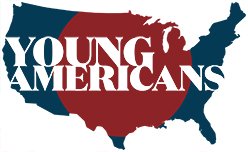 Back in July, the Anchorage Daily News reported that melting permafrost had caused the sole major roadway in Bethel, Alaska to become warped and bumpy, making it difficult to drive. Meanwhile, in West Virginia, environmental regulations and the use of fracking for fossil fuels production has led to a decline in the coal mining industry. Both states have a rich history of oral storytelling; both are at the center of two very different stories about climate change.
Back in July, the Anchorage Daily News reported that melting permafrost had caused the sole major roadway in Bethel, Alaska to become warped and bumpy, making it difficult to drive. Meanwhile, in West Virginia, environmental regulations and the use of fracking for fossil fuels production has led to a decline in the coal mining industry. Both states have a rich history of oral storytelling; both are at the center of two very different stories about climate change.
Dylan Harris, a doctoral candidate at Clark University, is using storytelling to explain the science of climate change to those who it affects the most. For the next two years, he’ll be researching climate change in Alaska and West Virginia.
“Folks who work with fossil fuels in Alaska and West Virginia are not the people going to see art shows about climate change in Brooklyn,” Harris said.
Harris focused his work on those states because “If climate change is this new and complicated problem, storytelling . . . is a way to make sense of the world.”
Harris’s research is split into two phases. The first phase is researching what major factors shape people’s understanding of climate change. “I tend to frame it in terms of cultural politics,” Harris explained. “Some of that initial data will be digging through archives, but also doing interviews.”
Harris has spent time in both Alaska and West Virginia meeting with storytellers and people involved in environmental change research and education. In 2018, he’ll begin the year-long process of interviewing storytellers, looking at archival research and observing how climate change is talked about in these communities.
Phase two is to run workshops. “The workshop idea is to study how storytelling develops among people who do storytelling very differently, and to use those perspectives to engage community members on how to understand and act on climate change,” Harris said.
Although still in the preliminary phase of his research, Harris has noted a difference in the way Alaskans and West Virginians perceive and discuss climate change. There are a lot of conversations about climate change happening in Alaska, Harris said, in part because the threat of climate change is so presently real to so many communities in Alaska. “However, in chatting with folks in Fairbanks, one thing that’s missing in these conversations is connecting those problems to global climate change, or even economics in the state.”
In West Virginia, the discussion around climate change has been focused on the declining coal mining industry, which has historically been the state’s economical backbone. “When people think about stereotypical Appalachia, you get this conservative understanding of that area and assume there’s not an interest in having this conversation,” Harris said. “There’s an interest. The way people talk about it, I find very exciting as a researcher.”
Harris hopes his research will help facilitate meaningful conversations about climate change within these small communities and beyond. Ultimately, he said, the goal is to give those affected the most by climate change a better understanding of the issue.
“Having someone who feels their jobs may be jeopardized meet and see the other side is really important,” Harris said.

